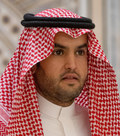In the heart of a crowded city, where concrete towers scraped the sky like overgrown weeds, a boy named Yusef dreamed of open spaces and cheering crowds. His family’s tiny apartment, perched high above the bustling streets, a precarious nest in a labyrinth of concrete, was his refuge, his window to a world beyond the confines of his reality.
From his balcony, Yusef could hear the distant roar of a stadium, a symphony of excitement carried on the wind from a neighboring city, a tantalizing echo of a life he yearned for. The sound ignited a spark in his eyes, a yearning for a life where dreams could take flight, unburdened by the weight of conflict, where the echoes of war were replaced by the cheers of a united crowd.
Yusef’s city was a place of stark contrasts. The vibrant colors of market stalls, laden with spices and fabrics, clashed with the drab gray of checkpoints and barricades, their cold metal a constant reminder of the city’s fragile peace. The laughter of children, playing their improvised games in the narrow alleyways, mingled with the rumble of armored vehicles, their presence a heavy shadow looming over the city’s vibrant heart. Life was a tightrope walk between hope and despair, a delicate dance between the mundane and the extraordinary.
The boy’s most treasured possession was a worn football, its faded markings a testament to countless hours of play in the cramped spaces below. It was more than just a ball, it was a symbol of freedom and possibility, a passport to a world beyond the concrete jungle, a world where a child’s spirit could soar unfettered by the constraints of his surroundings.
One day, the city fell silent. The usual sounds of life — the calls of vendors, the chatter of neighbors, the rhythmic clatter of donkey carts — were replaced by an ominous stillness. The streets, once teeming with activity, became deserted corridors of fear. Yusef, peering from his balcony, saw only empty spaces and shadows lurking in the corners, their elongated forms a grotesque mockery of the vibrant life that once filled the city.
The city, already isolated by conflict, was now under siege. Food and supplies dwindled, their scarcity a stark reminder of the city’s vulnerability. The once vibrant community was shrouded in a veil of uncertainty, each passing day bringing new anxieties and fears. Yusef’s dreams of open fields and cheering crowds seemed more distant than ever, a cruel mirage in a desert of despair.
In the days that followed, the city bore witness to the harsh realities of war. Buildings, once proud symbols of human ingenuity, crumbled into dust and rubble. Lives, once filled with promise and potential, were shattered like fragile glass. Childhoods, meant to be a time of innocence and joy, were cut short, their premature end a tragic testament to the brutal nature of conflict. Yusef, though sheltered from the worst of the violence, felt the weight of despair pressing down on his young shoulders, a burden too heavy for a child to bear.
Yet, even in the darkest hours, a spark of hope remained, a flickering flame refusing to be extinguished. The people, united by their shared struggle, found strength in their resilience, their collective spirit a beacon in the darkness. The boy, though robbed of his carefree days, discovered a new kind of courage, a determination to rise above the ashes of his shattered world, to rebuild, to heal, and to reclaim the stolen fragments of his childhood.
The roar of the distant stadium, once a symbol of a life beyond reach, now became a beacon of hope, a reminder that dreams could still find a way to bloom, even in the most barren of landscapes. It was a testament to the enduring power of the human spirit, a testament to the unyielding hope that could blossom even in the face of overwhelming adversity.
Yusef, like countless others in his city, had witnessed the end of childhood. But he had also witnessed the enduring spirit of his people, their unwavering belief in a better tomorrow. His football, a symbol of lost innocence, had been replaced by a newfound resolve, a determination to rebuild, to heal and to dream again.
In the city where childhood ended, a new generation was rising, a generation marked by hardship yet fueled by hope. Their voices, though muted by the echoes of war, carried a message of resilience, a testament to the enduring spirit of a people who refused to be silenced. Their dreams, though deferred by conflict, remained alive, waiting for the day when they could finally take flight, soaring above the rubble and reaching for the stars.
- Abdulelah S. Al-Nahari is a business and MarCom partner at a marketing solutions firm and leads strategic growth initiatives in line with Saudi Arabia’s digital-first vision. He has multi-sector awareness, strategic digital foresight and a range of industry experience.











